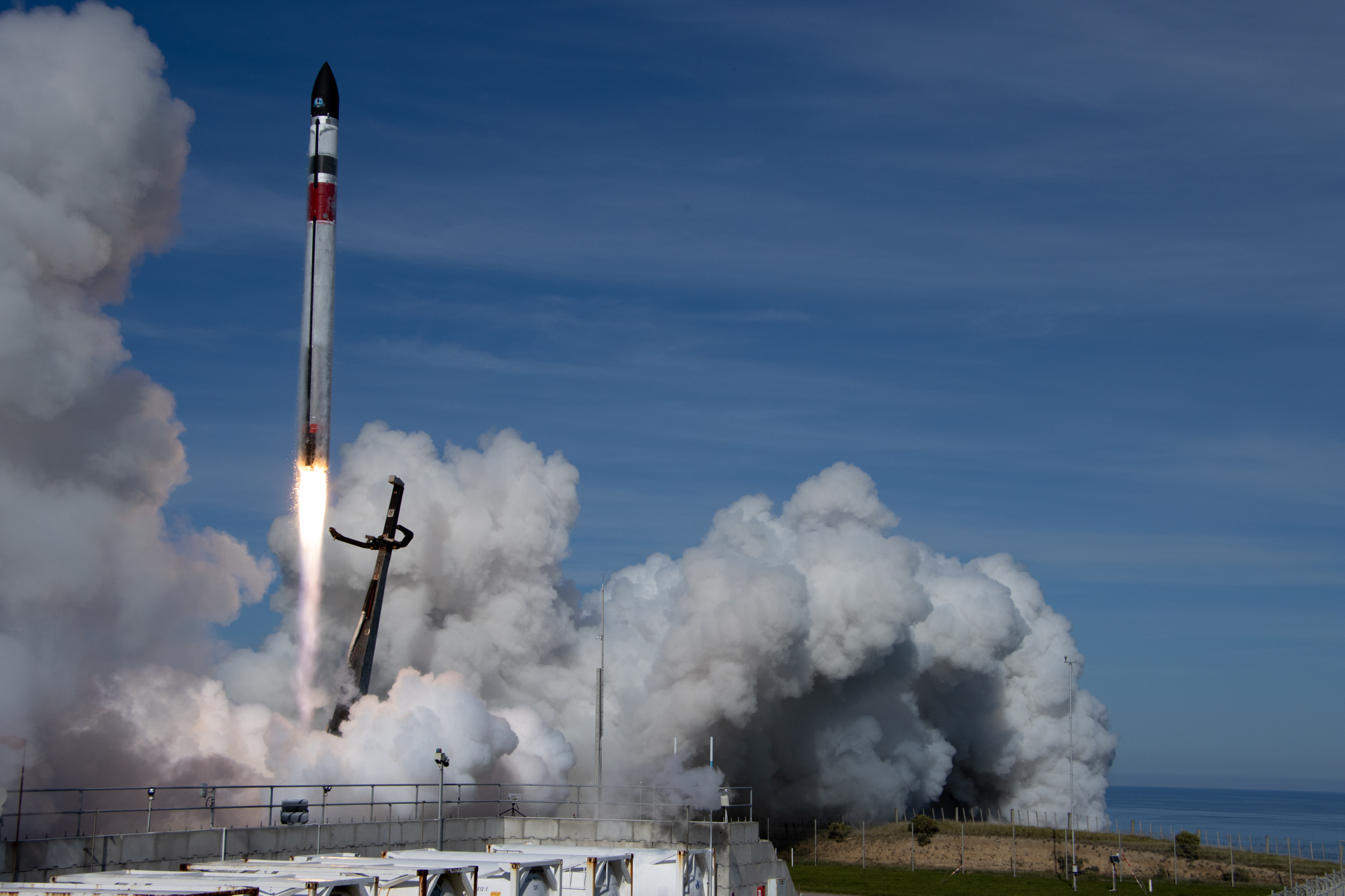
Some Rocket Lab launches could soon target spots on Earth rather than destinations above and beyond it.
The California-based company announced Tuesday (Sept. 6) that it has signed a cooperative research and development agreement (CRADA) with the United States Transportation Command (USTRANSCOM) to study the possibility of using Rocket Lab's Electron and forthcoming Neutron launchers to deliver cargo around the world.
"Rocket Lab USA will help the federal government understand commercial rocket capabilities for future logistics missions," Jamie Malak, the CRADA's government project lead at the U.S. Air Force Research Laboratory, said in a statement released by Rocket Lab.
Related: Rocket Lab and its Electron booster (photos)
"USTRANSCOM and its global Combatant Command customers have been constrained to logistics at the speed of conventional aircraft — or often far less — for their entire history," Malak added. "Now we can look to transport critical military cargo an order of magnitude faster than ever before. We will explore how to integrate rocket cargo systems in Defense logistics processes and how to make space transportation a reliable and practical option for operations of the future."
The 59-foot-tall (18 meters) Electron is Rocket Lab's workhorse small launch vehicle, with nearly 30 space missions under its belt. Neutron, which is scheduled to start flying in 2024, is a bigger rocket that will have a reusable first stage. (Rocket Lab is also working to make Electron first stages reusable at the moment.)
The newly announced CRADA also includes Rocket Lab's Photon spacecraft bus, which recently put NASA's tiny CAPSTONE probe on course for the moon. The company and USTRANSCOM, which provides transportation for troops and military cargo, will "explore using Photon spacecraft to establish on-orbit cargo depots and deliver reentry capability," according to the statement.
Get the Space.com Newsletter
Breaking space news, the latest updates on rocket launches, skywatching events and more!
Rocket Lab isn't the only company the U.S. military is considering for its future point-to-point transportation needs. Early this year, the Air Force awarded SpaceX a $102 million contract to make rocket deliveries of military cargo and humanitarian supplies.
That deal is a different beast than Rocket Lab's, however. Through CRADAs, federal agencies provide equipment, facilities, expertise and other services, but not funding, to private companies and other non-federal entities.
Mike Wall is the author of "Out There" (Grand Central Publishing, 2018; illustrated by Karl Tate), a book about the search for alien life. Follow him on Twitter @michaeldwall. Follow us on Twitter @Spacedotcom or on Facebook.
Join our Space Forums to keep talking space on the latest missions, night sky and more! And if you have a news tip, correction or comment, let us know at: community@space.com.

Michael Wall is a Senior Space Writer with Space.com and joined the team in 2010. He primarily covers exoplanets, spaceflight and military space, but has been known to dabble in the space art beat. His book about the search for alien life, "Out There," was published on Nov. 13, 2018. Before becoming a science writer, Michael worked as a herpetologist and wildlife biologist. He has a Ph.D. in evolutionary biology from the University of Sydney, Australia, a bachelor's degree from the University of Arizona, and a graduate certificate in science writing from the University of California, Santa Cruz. To find out what his latest project is, you can follow Michael on Twitter.









